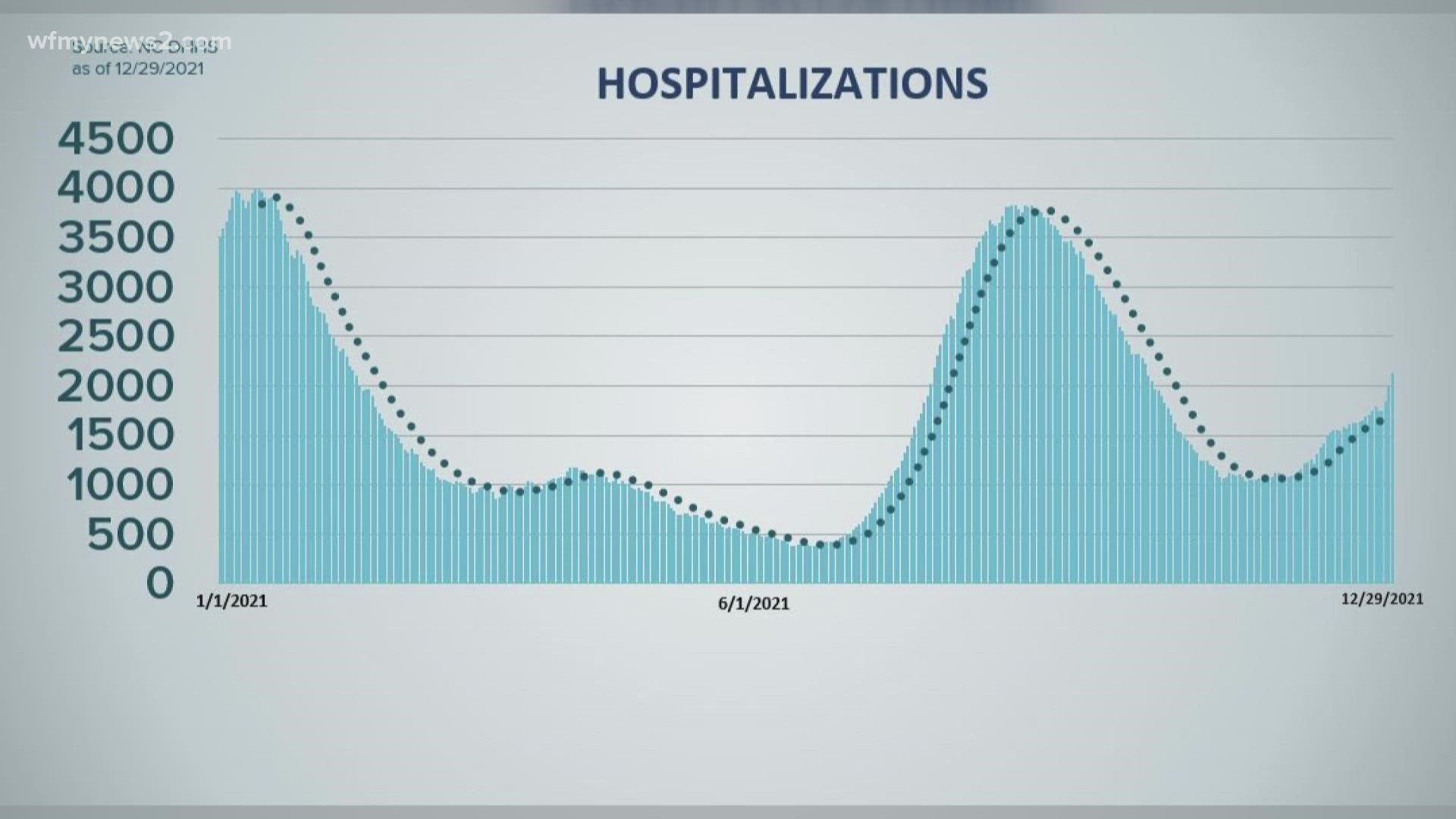RALEIGH, N.C. — North Carolina has reported its highest one-day number of COVID-19 cases.
The North Carolina Department of Health and Human Services reported statewide positive COVID-19 cases at 18,571. That’s 60% higher than the previous record of 11,581 set in January of this year. State health leaders also said the number of people visiting the emergency room for COVID-like illness also set a record at 4,171. The number of people currently in the hospital with COVID-19 has also nearly doubled since the beginning of the month.
The omicron variant of COVID-19 may cause less severe illness for people who are vaccinated. However, state officials said those who are unvaccinated or who have underlying medical conditions are at the highest risk of severe illness and hospitalization. They said 89% of people in intensive care are unvaccinated. They also said hospitalizations are likely to increase as the trend typically lags four to five days after an increase in cases.
“We are concerned that even a very small proportion of these cases ending up in the hospital could overwhelm our hospital system and increase the loss of lives of those most vulnerable,” said incoming NCDHHS Secretary Kody H. Kinsley. “Everyone can help save lives and protect hospital capacity by getting vaccinated if you haven’t already and getting boosted if you are eligible.”
Health officials said there are precautions you can take to help slow the spread of COVID-19.
Gathering Carefully – Avoid large gatherings particularly if you are unvaccinated. Keep gatherings small and make sure guests are vaccinated and boosted when eligible. Host gatherings outside. If you gather indoors, only do so with others who are vaccinated and leave room for social distancing, open windows for ventilation, and consider wearing masks. View more tips.
Vaccinating/Boosting – Vaccinations provide the best protection from severe illness, hospitalization and death from all COVID-19 variants. Get your booster shot if you are eligible – a booster shot provides more protection against infection from the Omicron variant.
Testing – Record testing levels mean that people need to plan ahead. Do not wait to book your appointment, and try an alternate testing location if your favorite one is full. Visit ncdhhs.gov/gettested for a list of testing sites, community events in your area, and other options to get tested. NCDHHS has worked with local governments to increase community testing. To protect hospital capacity, do not go to the emergency room just to get tested.
Masking – Wear a well-fitting mask, a surgical or procedure mask, a KN95 or an N95 mask. The CDC recommends all unvaccinated people 2 years old or older wear a mask indoors in public places. (CDC guidance)
North Carolina has ample of supply of vaccines and boosters available. People who have received two doses of either the Pfizer or Moderna mRNA vaccines should get a booster shot 6 months after their second shot. Those who got a Johnson & Johnson single-dose vaccine initially should receive a booster two months after their shot. The CDC recommends getting boosted as soon as you are eligible. Find out how to book an appointment in advance for your vaccine or booster shot, at MySpot.nc.gov.
If you have symptoms of COVID-19, the CDC has issued new guidance for isolating from others and masking.

